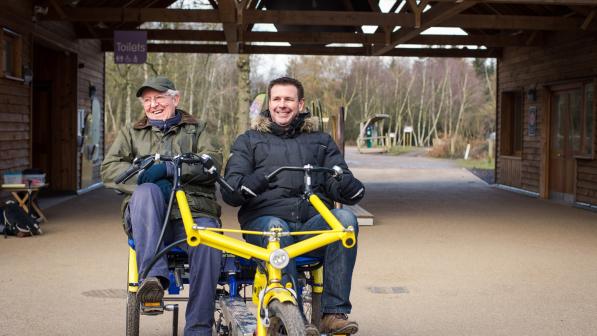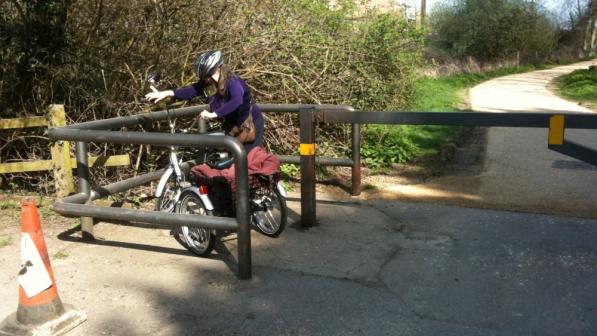Making cycling more inclusive for everybody

Cycling has the power to transform lives, helping people stay active, connect with their communities and travel independently. We know from our projects and research that there is an unmet demand for cycling for transport.
Yet, for too many disabled people, older riders or those facing social barriers, the simple joy of cycling is out of reach. This week (16 September), we have been proud to launch our report on the best practice in engaging disabled people in cycling for active travel.
A foundational piece of research, taking 18 months to bring together, it shines a light on the many challenges disabled people face, while setting out a vision for change.
The report, funded by the Motability Foundation and developed in partnership with many organisations supporting disabled people to cycle, captures the voices of hundreds of disabled people who shared their lived experiences of cycling.
It reveals the structural, cultural and practical barriers that prevent people from enjoying the freedom of two (or three) wheels. From inaccessible cycle infrastructure to the lack of affordable adapted cycles, the findings highlight the urgent need for inclusive policies and sustained investment to support disabled people.
I thought it [a new diagnosis] was gonna be the end of my cycling, and it’s not. It’s opened up new opportunities for me
Inclusive Cycling Experience participant
At its heart, the report calls for a broader provision for active travel, redrafting what ‘cycling for all’ truly means. Among its key insights are:
- Raising the profile of cycling for disabled people. For many, there is not enough representation of disabled people cycling for transport, so much so that many participants said they thought cycling wasn’t for them. However, with expert support and time, people were able to choose a cycle and accessories that met their needs. These early participants are now inspiring others to join them.
- Choice, affordability and flexibility are essential. Many people require adapted cycles, which remain expensive, and the opportunity to try and loan for a period of time, a range of cycles is scarce. Without further loan and purchase schemes, cycling remains a privilege, not a right.
- Community networks make the difference. Peer support, inclusive cycling hubs and local champions, embedded in the community, can help build confidence, skills and long-term participation.
- Policy and planning must catch up. Inclusive cycling should not be a niche consideration, but a central part of active travel strategies across the UK. One of the significant barriers to more widespread use of cycling for active travel remains the storage challenge for larger cycles.

As one participant shared: “I thought it [a new diagnosis] was gonna be the end of my cycling, and it’s not. It’s opened up new opportunities for me.”
This sentiment is echoed throughout the report, and the more than 3,500 people we have supported through the Inclusive Cycling Experience, demonstrating that with the right support, cycling can unlock independence, wellbeing and joy.
What was clear to those of us in the room on Tuesday, who heard Kerry, Kay, James and Chelsea speak, was that the report should not remain as just a piece of research – it’s a call to action. We urge policymakers, local authorities, community groups and the wider public to take these findings seriously.
By breaking down barriers, investing and advocating for inclusive design and programmes, we can ensure that cycling is not just for the fit and the fearless, but truly for everyone.
We invite you to read the full report, share it within your networks, and join us in building a movement for inclusive mobility. Whether you are a decision-maker, a campaigner, or someone who simply loves to ride, your voice matters in shaping this future.
Together, we can create a society where everyone has the freedom to cycle and travel independently – no matter what. This report is the starting point. The next step belongs to all of us.


